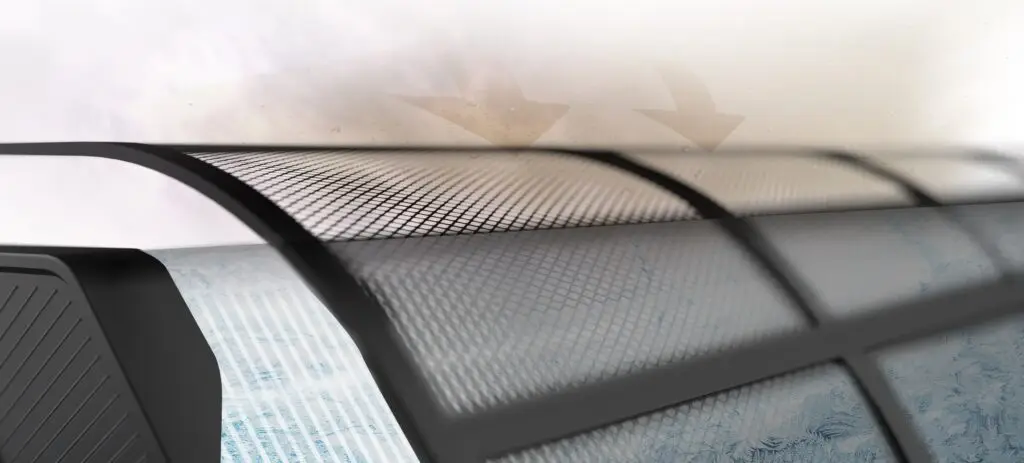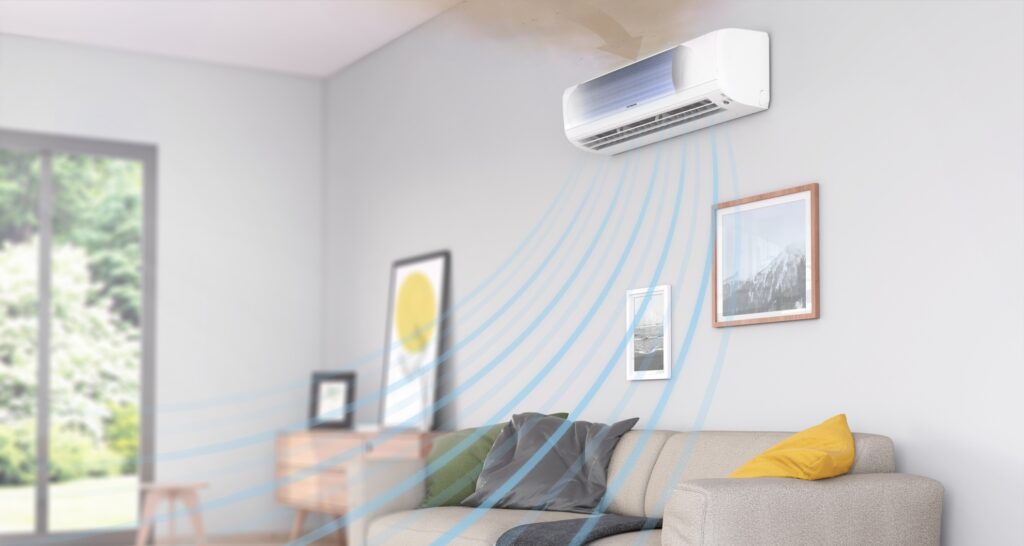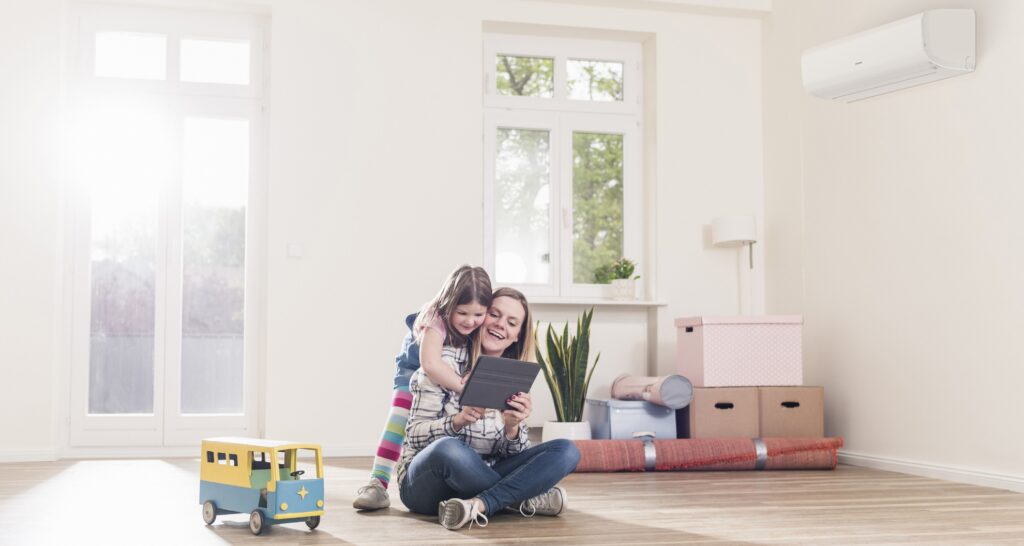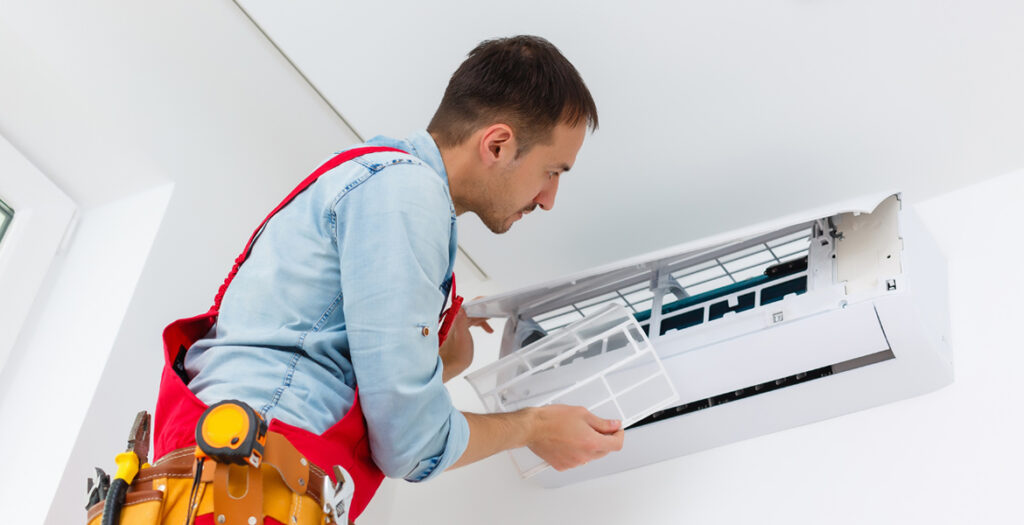- 22105 Hodna Street, Delft, Cape Town, 7100
- info@maxproaircon.co.za
Table of Contents
ToggleHave you noticed that your air conditioner isn’t cooling as efficiently as it used to? This common issue is often overlooked, yet it can significantly impact your comfort and health.
Ignoring air conditioner filter maintenance can lead to higher energy bills, reduced air quality, and even health problems such as allergies and respiratory issues. The longer you wait, the worse these problems can become, potentially leading to costly repairs or replacements.
Regular air conditioner filter maintenance is a simple yet highly effective way to ensure your system runs efficiently, keeps your indoor air clean, and extends the lifespan of your unit. This comprehensive guide will walk you through everything you need to know about maintaining your air conditioner filters.

There are several types of air conditioner filters, each with its benefits and drawbacks:
Air conditioner filters trap dust, dirt, and other particles, preventing them from entering the air conditioning system and your indoor air. They improve air quality and ensure the system runs efficiently by preventing clogging and reducing the strain on the unit.


Problem: Have you noticed that your air conditioner isn’t cooling as efficiently as it used to? This common issue is often overlooked, yet it can significantly impact your comfort and health.
Agitate: Ignoring air conditioner filter maintenance can lead to higher energy bills, reduced air quality, and even health problems such as allergies and respiratory issues. The longer you wait, the worse these problems can become, potentially leading to costly repairs or replacements.
Solution: Regular air conditioner filter maintenance is a simple yet highly effective way to ensure your system runs efficiently, keeps your indoor air clean, and extends the lifespan of your unit. This comprehensive guide will walk you through everything you need to know about maintaining your air conditioner filters.
There are several types of air conditioner filters, each with its benefits and drawbacks:
Air conditioner filters trap dust, dirt, and other particles, preventing them from entering the air conditioning system and your indoor air. They improve air quality and ensure the system runs efficiently by preventing clogging and reducing the strain on the unit.
Regular maintenance of air conditioner filters plays a critical role in maintaining indoor air quality, which directly impacts health. Here’s how:
Maintaining your air conditioner filters can significantly enhance energy efficiency and lead to substantial cost savings:
Regular filter maintenance contributes to the longevity of your air conditioning unit in several ways:
The frequency of changing or cleaning filters depends on various factors such as the type of filter, the usage of the air conditioner, and the environment. Generally, filters should be checked monthly and cleaned or replaced every 1-3 months.
After cleaning or replacing the filter, check the airflow and system performance to ensure everything is working correctly.


Even with regular maintenance, you may encounter issues with your air conditioner filter. Here’s how to troubleshoot common problems and ensure your system remains in top condition.
If you find that your air conditioner filter is damaged, follow these steps:
If you are experiencing persistent air quality issues despite regular air conditioner Filter Maintenance, consider the following:
While regular maintenance can handle most issues, certain problems require professional attention:
For those looking to maximize their air conditioner’s efficiency and performance, consider these advanced tips:
By implementing these advanced tips, you can ensure that your air conditioning system operates at peak efficiency, providing optimal air quality and comfort while extending the life of your equipment. Regular maintenance and timely upgrades are key to maintaining a healthy and cost-effective HVAC system.

Maintaining your air conditioner’s filter is essential for optimal performance and longevity. Here’s a detailed guide to help you understand when and how to change or clean your filters, the tools and materials you’ll need, and the proper steps to ensure your system runs efficiently.
The frequency of changing or cleaning your air conditioner filter depends on several factors:
Before you begin, gather the necessary tools and materials:
Removing the air conditioner filter is straightforward but requires care to avoid damaging the unit or the filter itself:
For washable filters, follow these steps to clean them thoroughly:
Reinstalling the filter correctly is crucial to ensure your air conditioner functions optimally:
After maintenance, it’s important to ensure everything is working as it should:
By following these detailed steps, you can maintain your air conditioner’s filter effectively, ensuring optimal performance, energy efficiency, and a longer lifespan for your unit. Regular maintenance not only saves you money on energy bills but also promotes a healthier indoor environment.
Typically, every 1-3 months, depending on usage and the type of filter.
No, disposable filters should be replaced, not cleaned.
It can lead to reduced airflow, higher energy bills, poor air quality, and potential damage to the air conditioning unit.
Check the specifications on the existing filter or refer to your air conditioner's manual.
High-efficiency filters can improve air quality and system performance, potentially saving money in the long run.
Yes, a dirty filter can restrict airflow, causing the coils to freeze.
Not necessarily. The thickness should match your system's specifications. Consult your air conditioner’s manual.
Yes, as long as the filter fits and meets the required specifications.
Regular filter maintenance, sealing leaks in ducts, and keeping the unit clean can improve efficiency.
Yes, smart filters can help monitor air quality and notify you when it’s time for maintenance, making it easier to maintain optimal performance.
Maintaining your air conditioner filter is essential for optimal performance, energy efficiency, and a healthy indoor environment. Here’s a quick recap of the key points covered:
Regular air conditioner filter maintenance might seem like a small task, but its impact is significant. Consistent checks and cleanings prevent a host of problems, from poor air quality to expensive repairs. By making filter maintenance a routine part of your home care, you ensure a comfortable and healthy living environment for you and your family. Remember, a well-maintained filter not only keeps your air conditioner running smoothly but also enhances your overall quality of life.
Proper air conditioner filter maintenance is crucial for a comfortable and healthy indoor environment.
Regular maintenance not only improves air quality but also enhances energy efficiency and extends the life of your air conditioning unit.
Imagine lower energy bills, fewer allergy symptoms, and a longer-lasting air conditioner with just a few simple maintenance steps.
Make a commitment today to regularly check, clean, or replace your air conditioner filters. Start by marking your calendar for the next filter check and setting reminders for future maintenance. Consider investing in high-efficiency or smart filters to further enhance your system’s performance. Your comfort, health, and wallet will thank you.
By taking these simple yet effective steps, you can ensure your air conditioner operates at its best, providing you with clean, cool air and peace of mind.
For professional assistance, don’t hesitate to contact Maxpro Air Conditioning & Ventilation.
Get in Touch:
Keep your air conditioner running efficiently and your indoor air clean with regular maintenance and professional cleaning services from Maxpro Air Conditioning & Ventilation.